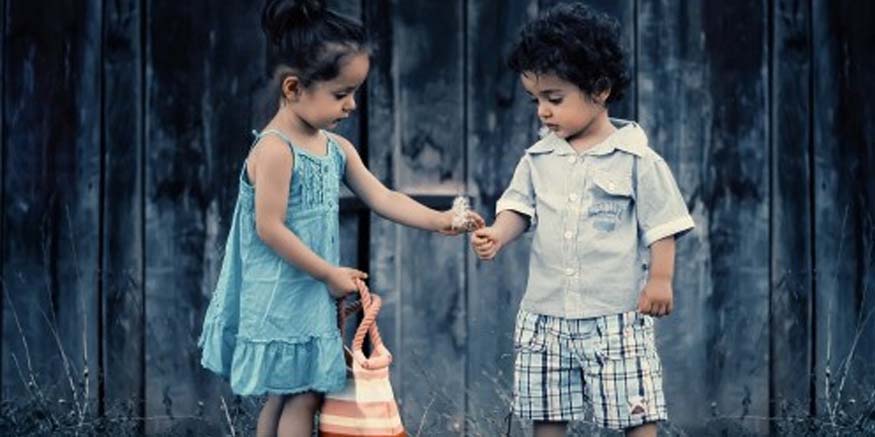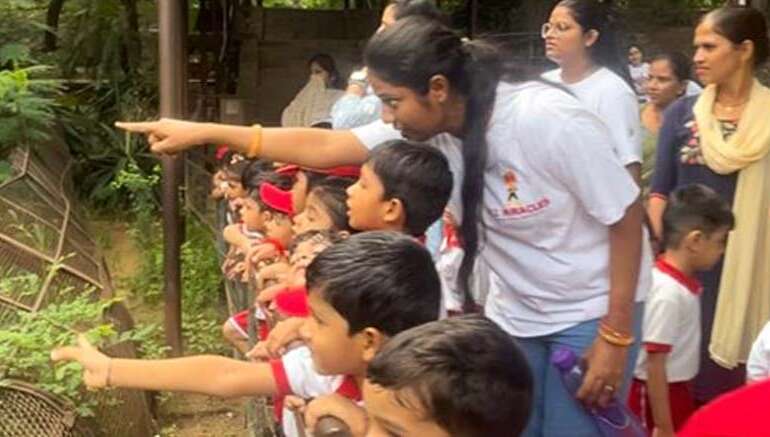Empathy, the ability to understand and share the feelings of others, is a crucial life skill that lays the foundation for strong social connections, emotional intelligence, and healthy relationships. For preschoolers, developing empathy not only helps them navigate their early social experiences but also fosters a lifelong capacity for compassion and kindness.
In this blog, we’ll explore the importance of empathy in early childhood, its benefits, and practical ways to nurture it in young children.
Why Empathy Is Important for Preschoolers?
Empathy is not an innate trait; it is a skill that children learn and develop over time. When preschoolers practice empathy, they:
- Build Healthy Social Relationships:
- Develop Emotional Intelligence:
- Foster Inclusion and Kindness:
- Prepare for Future Success:
Empathy helps children understand how others feel, making it easier for them to connect with their peers, resolve conflicts, and cooperate in group settings.
Empathetic children are more in tune with their own emotions and those of others, allowing them to handle feelings like frustration, sadness, or excitement with greater awareness and control.
Empathy nurtures a sense of responsibility toward others. Children who are empathetic tend to be kinder, more inclusive, and willing to help their friends, making the social environment healthier and more positive.
Empathy isn’t just about being kind; it’s a valuable skill in leadership, collaboration, and problem-solving. Empathetic individuals are often more successful in school, work, and personal relationships because they can understand different perspectives and work well in teams.
Benefits of Developing Empathy in Early Childhood
- Promotes Stronger Social Bonds:
- Improves Communication:
- Reduces Aggression and Bullying:
- Encourages Teamwork and Cooperation:
- Supports Emotional Well-being:
When preschoolers learn to recognize and respond to others’ emotions, they form stronger friendships and are more likely to maintain healthy, supportive relationships as they grow.
Empathy encourages active listening and meaningful dialogue. Children who understand the feelings of others are more likely to communicate thoughtfully and express themselves in a caring manner.
Empathetic children are less likely to engage in harmful behaviors like bullying. Understanding how their actions affect others helps children practice self-control and choose kindness over aggression.
Empathy enhances a child’s ability to work collaboratively with others. It leads to better cooperation, whether in play or problem-solving tasks, and fosters a sense of community in group activities.
Learning empathy contributes to a child’s overall emotional health, as it allows them to navigate difficult emotions, find comfort in shared experiences, and seek help when needed.
How to Help Preschoolers Develop Empathy?
Model Empathy: Children learn best by observing the behavior of adults around them. Show empathy in your daily interactions—whether it’s being kind to others, acknowledging your child’s feelings, or discussing emotions openly.
Example: When someone is upset, you can say, “I see that they’re feeling sad. Let’s think about how we can help them feel better.”
Use Stories and Role-Playing: Reading stories that explore emotions or involve characters dealing with different challenges can spark conversations about empathy. Ask your child how the characters might be feeling and what they would do in similar situations.
Example: After reading a story, ask questions like, “How do you think that made her feel?” or “What would you do to help?”
Encourage Perspective-Taking: Help children understand that others may have different feelings or experiences. Talk to them about how someone else might feel in a situation and encourage them to think beyond their own point of view.
Example: “How do you think your friend felt when you shared your toy with them?” or “How would you feel if that happened to you?”
Praise Empathetic Behavior: Positive reinforcement can go a long way in reinforcing empathy. When your child shows kindness or understanding, praise them for it. This helps them recognize the value of their actions and encourages them to repeat them.
Example: “I’m proud of you for comforting your friend when she was upset. That was very kind of you.”
Create Opportunities for Caring: Give preschoolers chances to care for others, whether it’s helping a sibling, comforting a friend, or taking care of a pet. These real-life experiences allow them to practice empathy in meaningful ways.
Teach Emotion Vocabulary:
Helping children identify and label their emotions gives them the tools to express their feelings and understand others’. Use language that describes emotions—happy, sad, frustrated, excited—so they can articulate how they feel and relate to others.
Example: “I can see you’re feeling frustrated because the block tower fell over. What can we do to help fix it?”
Foster Group Play and Collaboration: Collaborative activities like group games, building projects, or cooperative play encourage children to work together, share ideas, and think about each other’s feelings during play.
Example: Encourage children to take turns and ask, “How can we all play this game together so that everyone has fun?”
Conclusion
Empathy is more than just a social skill; it’s a life skill that benefits children now and into the future. By fostering empathy in preschoolers, we equip them with the ability to form strong relationships, understand diverse perspectives, and navigate the world with kindness and compassion. With consistent guidance, modeling, and practice, children can develop the empathy needed to thrive socially and emotionally throughout their lives.
Riitu Sharma,
Co-Founder
Li’l Miracles International Preschool




